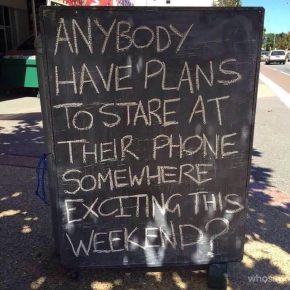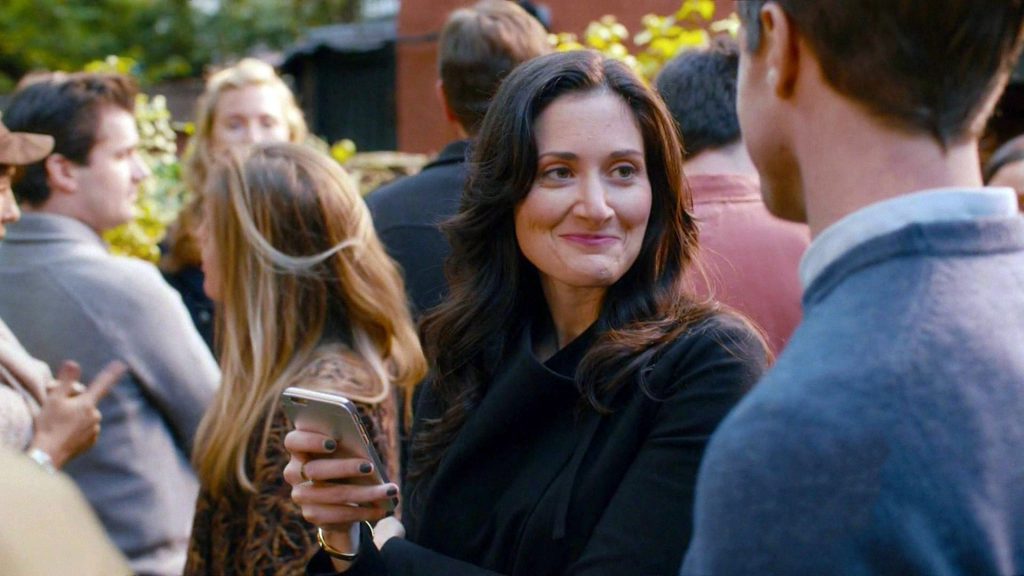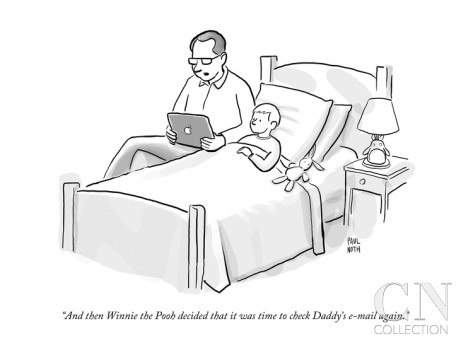
I owe you an apology. Or at least a confession. Nine months after switching to a flip phone, and about six months after making a big stink about it, I went back to a smart one. I’m not proud.
What got me in the end wasn’t Internet itself. I stand by what I wrote about the cost, both personal and communal, of non-stop web access. I probably undersold it. What made me, er, flip back was two things: music and texts. They were the rationalization, in any case.
 I realized about a month into the experiment that I wasn’t willing to live in a world where music wasn’t mobile. Walkmen and Discmen were faithful companions long before cell phones entered the picture; I can’t (and don’t want to) imagine traveling without a soundtrack. The last straw was when the CD player in my car broke, leaving the auxiliary cable my only option for tunes. It was as though the Lord himself had granted me plausible deniability. Thus, like a bad illustration of Romans 7, I started carrying around my decommissioned iPhone in the pocket not occupied by my flip phone. It looked as ridiculous as it sounds, a fact which my colleagues and loved ones wasted no time in bringing to my (re-divided) attention.
I realized about a month into the experiment that I wasn’t willing to live in a world where music wasn’t mobile. Walkmen and Discmen were faithful companions long before cell phones entered the picture; I can’t (and don’t want to) imagine traveling without a soundtrack. The last straw was when the CD player in my car broke, leaving the auxiliary cable my only option for tunes. It was as though the Lord himself had granted me plausible deniability. Thus, like a bad illustration of Romans 7, I started carrying around my decommissioned iPhone in the pocket not occupied by my flip phone. It looked as ridiculous as it sounds, a fact which my colleagues and loved ones wasted no time in bringing to my (re-divided) attention.
Texts were the other reason. Call me naive, but I hadn’t realized how much I–and everyone in my vicinity–had come to rely on text-messaging to communicate. The flip-phone could accomplish a simple message, sure, and the extra taps weren’t the end of the world. They usually made people laugh. Pretty much all casual (joke) texting was eliminated, and what texting I did do became extraordinarily economical. Which wouldn’t have been a problem even two years ago. But now, it gave off the impression of impatience and even rudeness. People would ask me if I was okay, if I was upset about something, why I hadn’t responded to their message (“Because I was about to see you”). I found myself making excuses for my less-than-effervescent text etiquette, not exactly the most endearing position when you’ve just met someone.
Basically, my relationships began to suffer. Like a vegan on the Fourth of July, I was the guy you had to plan around, the only difference being that people today tend to be pretty accommodating of dietary restrictions. But that address or picture you’re trying to send me? Would you mind emailing it instead? Oh and forget about communicating with anyone under 25. The whole thing was a real liability for someone who works with college students.
In short, my issue became everyone else’s. It wasn’t just car stereos that had moved on.

The reason I bring this up isn’t strictly to let myself or you off the hook (though a little less guilt around this whole issue might not be a bad thing). I am coming clean today to explain the trepidation I experienced upon hearing that Andrew Sullivan had penned a full-length essay for New York Magazine entitled, “I Used to Be a Human Being”, chronicling his technology-induced nervous breakdown of a few years ago. Suddenly my inbox was full of well-meaning friends telling me how I much it reminded them of [a varsity, Catholicized version of] what I’d attempted in The Technology Issue, and by the way, how was that going? I couldn’t help but notice your texts turned blue the other day…
The jig was up.
Alas, Sullivan’s essay is a masterclass in the form, not so much guilt-inducing as reality-checking, his pivot to religion in the final third as deft as ever (the putdown of the English Reformation notwithstanding). Do yourself a favor and read the whole thing. However, if you’re like me and need a few hooks to yank your attention away from the distraction du jour, here you go:
The reason we live in a culture increasingly without faith is not because science has somehow disproved the unprovable, but because the white noise of secularism has removed the very stillness in which it might endure or be reborn.
…The roar and disruption of the Industrial Revolution violated what quiet still remained until modern capitalism made business central to our culture and the ever-more efficient meeting of needs and wants our primary collective goal. We became a civilization of getting things done — with the development of America, in some ways, as its crowning achievement. Silence in modernity became, over the centuries, an anachronism, even a symbol of the useless superstitions we had left behind. The smartphone revolution of the past decade can be seen in some ways simply as the final twist of this ratchet, in which those few remaining redoubts of quiet — the tiny cracks of inactivity in our lives — are being methodically filled with more stimulus and noise.
And yet our need for quiet has never fully gone away, because our practical achievements, however spectacular, never quite fulfill us. They are always giving way to new wants and needs, always requiring updating or repairing, always falling short. The mania of our online lives reveals this: We keep swiping and swiping because we are never fully satisfied. The late British philosopher Michael Oakeshott starkly called this truth “the deadliness of doing.” There seems no end to this paradox of practical life, and no way out, just an infinite succession of efforts, all doomed ultimately to fail…
Except, of course, there is the option of a spiritual reconciliation to this futility, an attempt to transcend the unending cycle of impermanent human achievement. There is a recognition that beyond mere doing, there is also being; that at the end of life, there is also the great silence of death with which we must eventually make our peace. From the moment I entered a church in my childhood, I understood that this place was different because it was so quiet. The Mass itself was full of silences — those liturgical pauses that would never do in a theater, those minutes of quiet after communion when we were encouraged to get lost in prayer, those liturgical spaces that seemed to insist that we are in no hurry here. And this silence demarcated what we once understood as the sacred, marking a space beyond the secular world of noise and business and shopping…
That Judeo-Christian tradition recognized a critical distinction — and tension — between noise and silence, between getting through the day and getting a grip on one’s whole life. The Sabbath — the Jewish institution co-opted by Christianity — was a collective imposition of relative silence, a moment of calm to reflect on our lives under the light of eternity. It helped define much of Western public life once a week for centuries — only to dissipate, with scarcely a passing regret, into the commercial cacophony of the past couple of decades. It reflected a now-battered belief that a sustained spiritual life is simply unfeasible for most mortals without these refuges from noise and work to buffer us and remind us who we really are. But just as modern street lighting has slowly blotted the stars from the visible skies, so too have cars and planes and factories and flickering digital screens combined to rob us of a silence that was previously regarded as integral to the health of the human imagination.
This changes us. It slowly removes — without our even noticing it — the very spaces where we can gain a footing in our minds and souls that is not captive to constant pressures or desires or duties. And the smartphone has all but banished them.
If the churches came to understand that the greatest threat to faith today is not hedonism but distraction, perhaps they might begin to appeal anew to a frazzled digital generation. Christian leaders seem to think that they need more distraction to counter the distraction. Their services have degenerated into emotional spasms, their spaces drowned with light and noise and locked shut throughout the day, when their darkness and silence might actually draw those whose minds and souls have grown web-weary…
https://www.youtube.com/watch?v=6Mwpmjf6cwE
I’ll leave you to read his elegant and appropriately sobering conclusion on your own. Again, other than a hearty amen, I don’t have anything to add that wasn’t included in that Tech Issue article. He misses the justification component, but not much else. Liturgical churches do have a tremendous opportunity here (as do summer camps). A dash of monasticism might–gasp!–do us all some good.
Yet let us also not fool ourselves into believing that silence and stillness on their own are enough. We have every reason to fear those things, were it not for the God we encounter there, the “mediator and advocate” who suffered divine silence, once for all.
In fact, to the extent that distraction is killing us (and we are too distracted to notice), or technology quickening our collective breakdown, it may be bringing us into contact with the divine in a way that no amount of carefully chosen, quietly contemplated words can. Because the God who dwells in silence does not exist independent of the noise, pixelated or non-, nor is he waiting for you and me to calm our own storms. Miraculous as it may sound, I’ve heard he even has a predilection for hopeless rationalizers and their hypocritical friends.
I read it online so it has to be true.

COMMENTS
3 responses to “Lay Down Your Smartphone and Follow Me? (Just a Second…)”
Leave a Reply














Hello Mockingbird. So I’ve been studying spiritual formation for a few years and practicing many of the historic disciplines, primarily solitude and silence. And I’ve attempted to pass on through Adult Sunday School classes, what I’ve learned and experienced. Very few “mature” Christians expressed a desire to rock the boat they are comfortable in. Each week a mini exercise was suggested, like a 6 hour fast from all technology. It was surprising to me that 80% wouldn’t even attempt it. And the class was not a bunch of millennials. The white noise appetite runs so much deeper than cellphones. I’ve had some success, if you can call it that, with something I call “Random Sabbath”. It’s a 90 minute event I schedule on short notice. People come to the sanctuary and sit, lay down, do whatever as long as it is stationary. No phones or tech, candlelit with incense, and a 90 minute loop of music designed to elicit self reflection. No singing allowed or talking. Basically, doing nothing at church for 90 minutes. The first time, people came who never come to any event except Eucharist. About a fourth of the congregation showed up. After that the crowd was a lot smaller. People couldn’t do nothing even with good background music and a real excuse to sit there. Heartbreaking. But for those who could, it was very meaningful and surprising. Haven’t done one for awhile but y’all just prompted me. Thanks, as always, for the thoughtful posts. God’s peace.
David, I dropped my flip phone that I affectionately referred to as a dumbphone and broke it about 4 years ago. I couldn’t find a phone booth anywhere! So, I moved up to an outdated slider. I had vowed to never give into the beast. But, I finally gave up and now have a smartphone. No regrets! No condemnation!